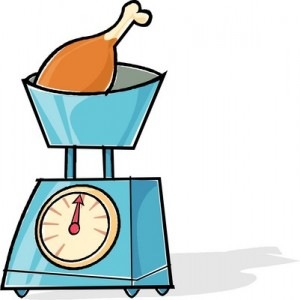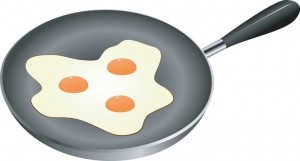 What do I want to eat? What should I eat? Two questions we all ask ourselves. Including me. A lot. Standing in front of the fridge with the door open. Staring at the shelves in the pantry or in front of the deli case – or when staring at a menu. With no clear idea, the danger zone looms — setting up the perfect scenario for being easily swayed by all kinds of food that, perhaps, isn’t really the best for you.
What do I want to eat? What should I eat? Two questions we all ask ourselves. Including me. A lot. Standing in front of the fridge with the door open. Staring at the shelves in the pantry or in front of the deli case – or when staring at a menu. With no clear idea, the danger zone looms — setting up the perfect scenario for being easily swayed by all kinds of food that, perhaps, isn’t really the best for you.
What’s The Answer?
Sorry to disappoint you, but there really isn’t a one-size-fits-all answer. I can’t tell you what to eat. That’s your personal decision. But here’s some helpful guidelines:
- deprivation doesn’t work. Certainly not for long lasting and healthy weight loss and maintenance.
- restriction and deprivation almost always end up in a pendulum swing – restriction on one end and indulgence on the other.
- how many times have you deprived yourself of a food that you love only to gorge on it when you hit an emotional low and toss resolve out the window?
- constant dieting doesn’t work either. It messes with your metabolism, and dieting — by its very nature — means deprivation.
How Do You Figure Out What To Eat?
There’s no two ways around it: energy taken in (calories) should equal energy output (physical movement and metabolism). If you eat more calories than you use up, you gain weight. To maintain your weight, your energy (calorie) intake and caloric expenditure (activity and metabolism) have to be in balance. An imbalance means you either gain weight or lose weight.
There are ways to help figure out how to eat delicious food and not pack on the pounds. Each of us has food and food memories that we feel we can’t — and don’t want to — live without. Sometimes it’s hard to separate the food we eat because we physically need it from the food we eat for emotional, cultural, religious, or traditional reasons. Sometimes the two can’t and shouldn’t be separated.
Foodie Checks and Balances
When you know what is good for your body and what isn’t, and how much food your body needs for the amount of activity you do, there are a bunch of questions you can use to evaluate your food choices – before you make them. It sounds like a big deal, but it’s really not – you probably ask yourself some of these already. It’s a simple system of “foodie checks and balances.” The answers can give you valuable information to use to make good food choices – wherever and whenever.
- What is my tried and true meal that can be my fallback or my “go to” meal for breakfast, lunch, or dinner? What type of food did I grow up with? Did that type of eating make me feel energetic and clear-headed? There’s something to be said about eating the way our ancestors did (even if its only one or two generations ago).
- How do I feel when I eat this food? If you feel like garbage after eating red meat or drinking a glass of milk, stay away from those foods. Just because someone else eats them doesn’t mean you have to. A journal comes in handy so you can write down what you eat and how you feel and then figure out what foods make you feel good or bad.
- Is it delicious? Why waste your calories on something that doesn’t taste good or that has little or no nutritional value. There are two sides to this coin. Just because something is good for you doesn’t mean that it has to taste bad. There are many ways to prepare foods so try a different preparation. The other side of the coin is that maybe you’ll never like a certain food. Who cares if it’s a nutritional superstar. There are plenty of them. Why eat what you can’t stand? There are lots of delicious and healthy foods to go around so choose something else. Don’t waste your nutritional budget on something that you don’t like.
- Is it healthy? Is it good for me — not Is it good for my family, my spouse, or my friend? Don’t waste your calories on something that doesn’t do anything for you. Some foods may be delicious (to you) but be downright unhealthy. Give up on the empty and unhealthy calories. What’s the point of eating stuff that does nothing for you, or that may be bad for you?
- If I eat this, how am I going to feel half an hour or an hour from now? Ever eat a big bowl of pasta at lunch, start to nod off and reach for a monster cup of coffee? Ever stop at a gas station on a long road trip to grab a candy bar – only to find yourself nodding off a while later? Dangerous. I once had pasta for dinner before a movie and promptly fell asleep during the trailer only to wake up when the movie credits were rolling. Pasta makes me sleepy, so does candy. What about you?
- Food affects your mental clarity. Learn to identify the relationship between certain foods and how your body physically and emotionally reacts to them. Some make you sleepy, some make you crabby, some make you alert, and some give you energy. Which foods do what for you?
- Is this the right portion size for me? Portion control is essential for weight management. Learn to eyeball portion sizes and commit to a personal “no seconds” policy.
- Do I really want to eat this or am I doing it just because . . . (you supply the answer – some typical ones are: everyone else is eating it, or my kids love it, or Grandma made it, or it’s the specialty of the restaurant, or “I had a tough day, I deserve it”).
Some Questions To Ask Yourself
Create a habit of asking yourself these questions when you’re faced with food choices:
- How will I feel when I eat this food?
- Am I really hungry?
- Is it delicious?
- Is it good for me?
- Is it healthy?
- If I eat this, how am I going to feel half an hour to an hour from now?
- Is this the right portion size for me?
- Do I really want to eat this or am I doing it just because . . .?
What are some of the questions you can ask yourself before eating?



